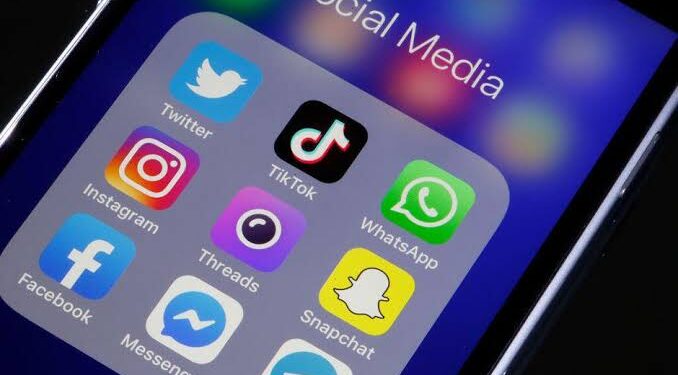All over the world, billions of people use social media every day, and the numbers keep growing.
Mobile devices are dominating in terms of time spent on the internet, putting the means of communication anywhere, anytime accessible in everyone’s hands.
Therefore, this connected experience allows people to communicate with others and share their thoughts, feelings, and ideas. It also serves as a source of entertainment; and many companies have found it useful for promotion and marketing.
At this point, social media has had such a strong impact on society that it seems impossible to live without it. However, with most people using at least one major social media platform, many people still fail to understand the broader impacts these tools have in shaping society.
The Flip sides
Although it is no new thing that technology evolves every day and the emergence of many social media platforms such as Facebook, Twitter, Snapchat and Instagram, among many others connect us with others from all over the world, its usefulness has been proven to go far beyond the boundaries of “hello”, where do you come from?”.
Over time, social media has evolved from a tool for keeping in touch with loved ones, into one for making a real impact on society. Its influence is shaping the spheres of politics, businesses, global culture, education, jobs, innovation, and more.
As it changes the way we communicate, it is opening up new spaces and structures that are particularly effective for the tech-savvy population who use social networking sites most often.
This is because these populations can have connections that were not previously possible, and can access and benefit from more information than ever before.
Thus, promoting development skills that are invaluable for growth and survival.
Social Media is Helping us Respond to Threats Effectively
In many parts of the world, mass atrocities and other human rights abuses continue to threaten societies, particularly minorities and indigenous peoples. Therefore, as social media continues to spread around the world, its influence is increasing in the context of genocide or the suppression of organized violence.
Moreover, social media has redefined communication and has become an effective tool in emergency situations. People have been using it to organize peaceful protests and defend democracy for some time now.
Recently, it has become a tool to better understand conflict dynamics and combat extremism. Although the negatives of social media have also been noted down, there is no doubt that its use has helped keep many people out of trouble as well as save lives.
In 2020, the appeal against SARS in Nigeria was one that had become extremely vocal because of the increased use of social media in the country, which was used by citizens who documented the alleged atrocities of the body and shared it on various social media platforms.
Social media was used as a broadcast medium of protest as the media were prevented from covering or reporting the incident. People also learned about the incident internationally, and how brutal the police were during the demonstration. Social media has been used to raise awareness.
Therefore, widespread backlash escalated against SARS, which illegally targeted and detained young men and women, accusing them of online fraud, and prostitution simply on the evidence of owning a laptop or smartphone, and then requesting exorbitant bail fees before letting them go.
Early tweets posted online regarding the protests were a coordinated attempt to gain significant media attention for a successful intervention that worked.
Consequently, more and more people are using social media to mitigate disasters and seek help wherever they are.
As a result, countries around the world now have access to instant information about natural or man-made disasters and can use this technology to help contain or stop disasters.
It is Revolutionizing How we Govern and are Governed
Today, Twitter, Facebook, Instagram, WhatsApp, YouTube and other social media platforms are widely recognized as institutional tools for creating an open and democratic society because they facilitate the flow of information, freedom of expression and exchange of ideas around the world.
It has become an important part of people’s daily life and society and has the potential to redistribute power by strengthening state-civil relations, providing citizens with opportunities for greater political participation and awareness in response to social injustice as well as control over government actions.
Thus, promoting citizens’ ideas and initiatives more than ever before.
Social media is increasingly influencing how governance, policy events, and corruption are viewed, tracked, and responded to.
In this regard, countries around the world have gained greater access to information capable of mobilizing and challenging national leadership, while providing an environment for interactive information and diverse perspectives on issues, interaction, and the ability to transcend borders and overcome barriers.
Moreover, the importance of governments not only to adapt to a rapidly advancing world but also to take advantage of new forms of communication for better governance cannot be overemphasized.

































